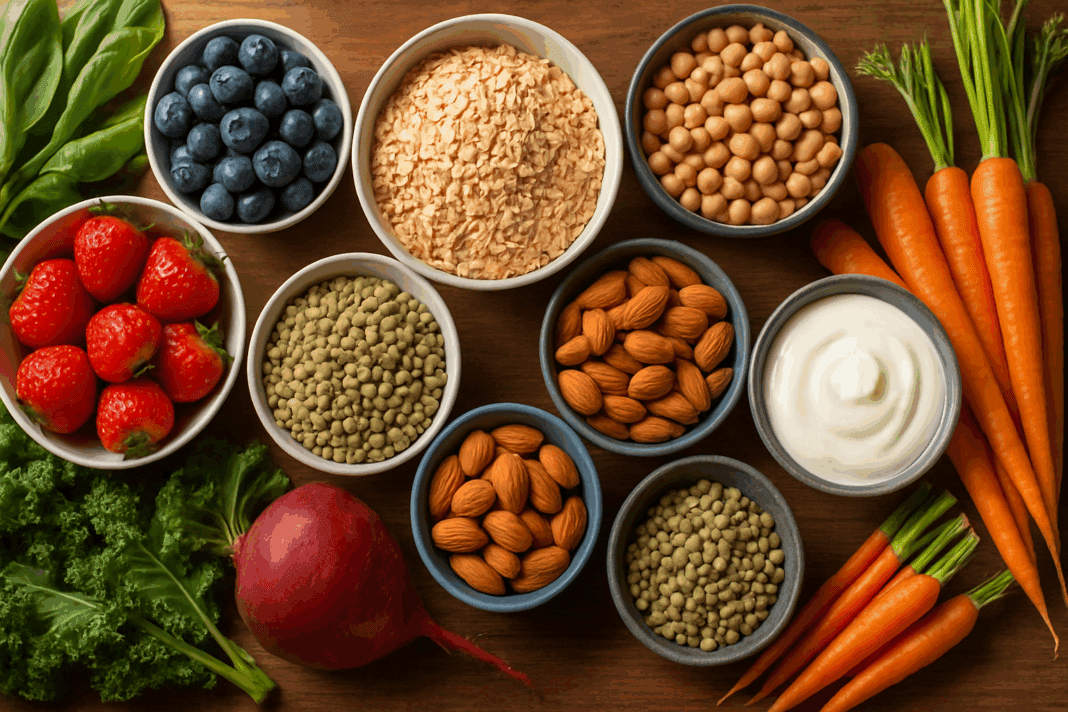The human colon plays a critical role in maintaining overall digestive function, nutrient absorption, and immune response. In today’s health-conscious world, understanding how to support colon health through diet is not just a matter of wellness but also a foundation for long-term vitality. Among the most reliable ways to nourish the digestive tract is through the inclusion of colon healthy foods, a category that includes a diverse array of fiber-rich, anti-inflammatory, and probiotic-enhancing ingredients. These foods serve as more than just fuel; they actively contribute to the repair, protection, and rejuvenation of the gut lining, while promoting the optimal function of the gut microbiome.
You may also like: The Ultimate Guide to Gut Healthy Meals: Best Meals for Gut Health and Nourishing Recipes You’ll Love
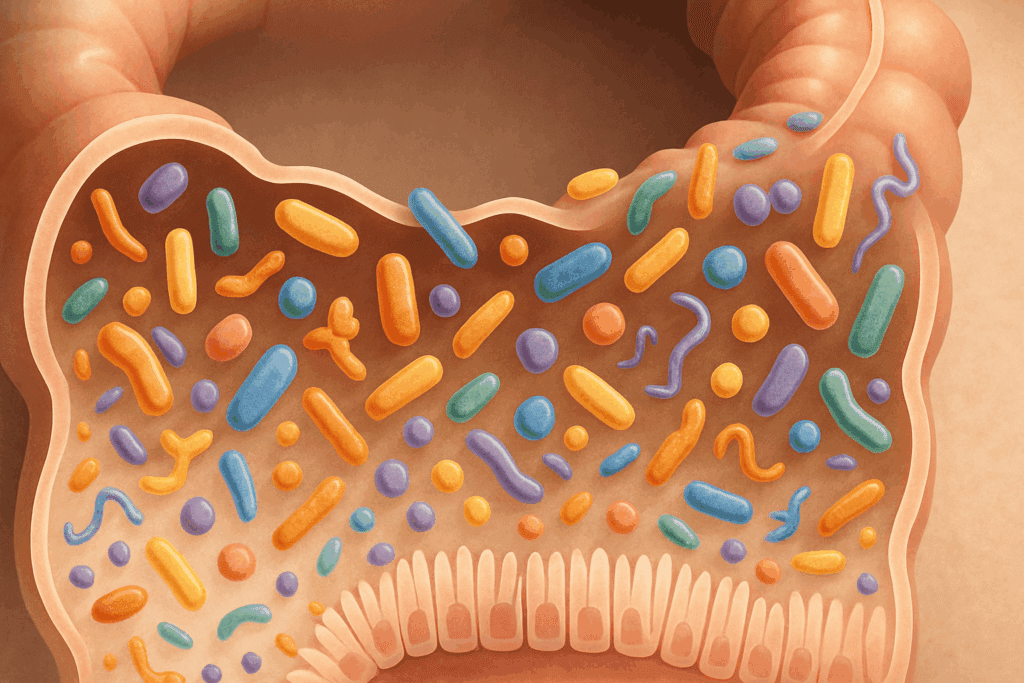
Why Colon Health Is Central to Overall Wellness
Often overlooked, the colon is not simply a conduit for waste elimination but a finely tuned system involved in water absorption, vitamin synthesis, and the fermentation of undigested carbohydrates. A healthy colon helps regulate inflammation throughout the body and is a critical line of defense against harmful bacteria. When the colon is functioning optimally, individuals are more likely to experience regular bowel movements, reduced bloating, improved mental clarity, and even enhanced skin health. In contrast, poor colon health can lead to constipation, leaky gut, and systemic inflammation, potentially triggering or exacerbating chronic illnesses such as irritable bowel syndrome (IBS), inflammatory bowel disease (IBD), and colorectal cancer.
The growing field of nutritional science emphasizes the direct correlation between diet and gastrointestinal health. A colon-friendly diet not only supports digestion but also helps regulate hormonal balance, cardiovascular function, and even mood stability. This is because the gut and brain communicate bidirectionally via the gut-brain axis, meaning any compromise in colon health can also affect cognitive performance and emotional well-being. As such, investing in a diet rich in foods good for colon health is an investment in holistic wellness.
Understanding the Microbiome and Its Role in Colon Function
Integral to colon health is the gut microbiome, the complex community of microorganisms residing primarily in the colon. These microbes are not passive inhabitants but active participants in digestion, immune function, and the prevention of pathogenic overgrowth. A diverse and balanced microbiome assists in the breakdown of complex carbohydrates and the production of short-chain fatty acids (SCFAs) such as butyrate, which serve as energy sources for colonocytes—the cells lining the colon.
An imbalance in this microbial ecosystem, known as dysbiosis, has been linked to numerous health issues ranging from obesity and type 2 diabetes to autoimmune conditions and depression. Colon healthy foods are instrumental in maintaining microbial equilibrium. Prebiotic foods, such as garlic, onions, leeks, and asparagus, provide the necessary substrate to feed beneficial bacteria. In turn, these bacteria produce metabolites that reinforce the gut barrier and regulate immune responses. Probiotic-rich foods like yogurt, kefir, sauerkraut, and kimchi introduce live bacteria that can repopulate and diversify the microbiome, further enhancing colon function.
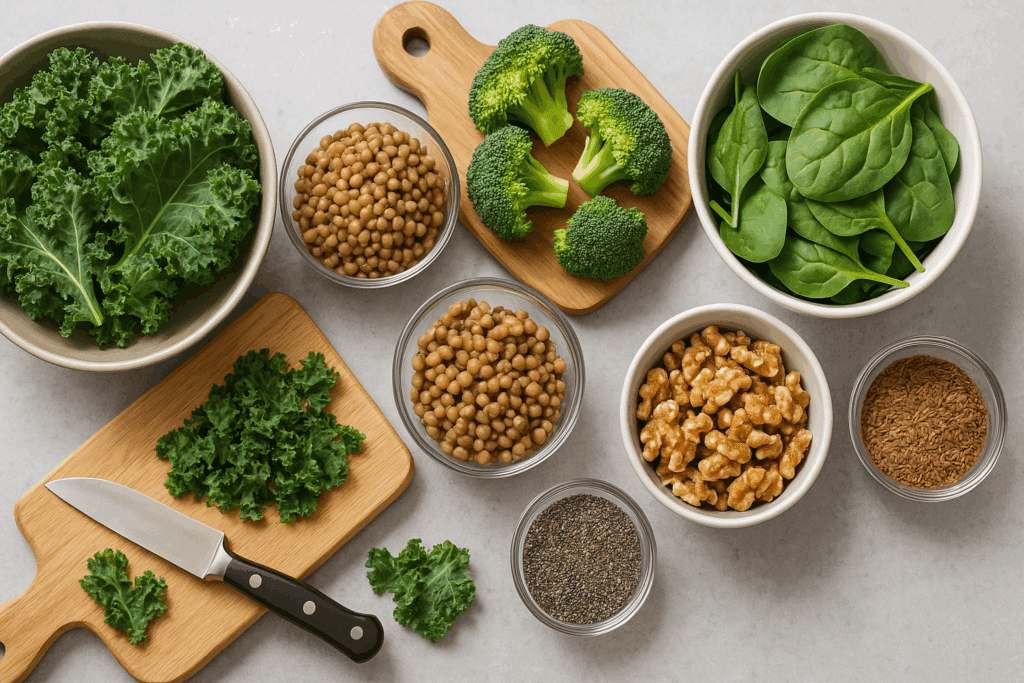
Colon Healthy Foods That Build a Strong Digestive Foundation
A nutrient-dense diet filled with colon healthy foods can fortify the digestive system at every level. Whole plant-based foods are particularly beneficial due to their fiber content, phytochemical richness, and enzymatic diversity. Soluble fiber, found in oats, flaxseeds, and legumes, slows digestion and helps regulate blood sugar levels while softening stool. Insoluble fiber, on the other hand, adds bulk and facilitates the movement of material through the digestive tract, reducing the likelihood of constipation.
Leafy greens like spinach, kale, and Swiss chard are among the best foods good for colon health. These vegetables are high in magnesium, which supports intestinal muscle contraction, and contain natural compounds that stimulate bile production, aiding in fat digestion. Cruciferous vegetables such as broccoli, cauliflower, and Brussels sprouts are also valuable due to their high antioxidant content and sulfur-containing compounds like glucosinolates, which support detoxification.
Nuts and seeds provide a combination of fiber, healthy fats, and anti-inflammatory omega-3s, which together nourish the gut lining. Walnuts, chia seeds, and flaxseeds are particularly useful for supporting microbial diversity and reducing intestinal inflammation. Legumes such as lentils, black beans, and chickpeas are also high in fiber and resistant starch, which helps feed beneficial bacteria while enhancing colon motility.
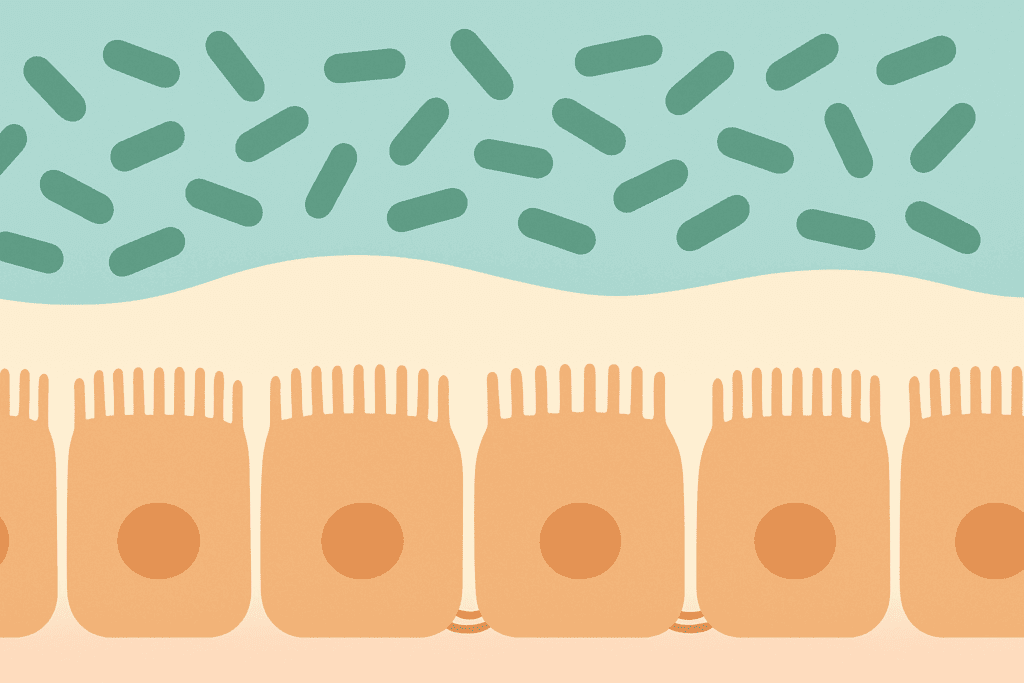
How Colon Healthy Foods Improve the Gut Barrier
The gut barrier functions as a semi-permeable membrane that allows nutrients to pass through while blocking harmful substances. When compromised, this barrier becomes “leaky,” allowing undigested food particles, bacteria, and toxins to enter the bloodstream—a phenomenon known as leaky gut syndrome. This condition has been implicated in systemic inflammation and autoimmune disease progression.
Colon healthy foods help reinforce this barrier in several ways. First, they provide essential nutrients like zinc, glutamine, and omega-3 fatty acids that are necessary for epithelial cell repair. Second, they promote the production of SCFAs, particularly butyrate, which strengthens tight junctions between epithelial cells and maintains mucosal integrity. Butyrate also has anti-inflammatory properties, reducing the expression of pro-inflammatory cytokines and enhancing immune tolerance.
Foods like bone broth, rich in collagen and amino acids, support the regeneration of the intestinal lining. Fermented vegetables and cultured dairy products introduce beneficial microbes that modulate the immune system and reduce intestinal permeability. These dietary strategies are especially critical for individuals with a history of antibiotic use, chronic stress, or gastrointestinal disorders.
The Role of Hydration and Digestive Fluids in Colon Health
While the importance of fiber and probiotics is well-established, hydration is an often-overlooked element in digestive wellness. Water helps soften stool, promotes regular bowel movements, and assists in the transportation of nutrients. Without adequate hydration, even a high-fiber diet may lead to bloating and constipation.
Colon healthy foods often have a naturally high water content, such as cucumbers, celery, and watermelon, which contribute to daily fluid intake. Herbal teas made from ingredients like ginger, peppermint, and fennel can also soothe the digestive tract and reduce gas. Moreover, the production of digestive enzymes and stomach acid is dependent on proper hydration and mineral balance, which facilitates nutrient breakdown and absorption.
Incorporating mineral-rich beverages such as coconut water or adding a pinch of sea salt and lemon to plain water can enhance electrolyte balance and support optimal digestion. Warm fluids consumed in the morning may stimulate peristalsis and encourage regular elimination, a fundamental aspect of colon health maintenance.
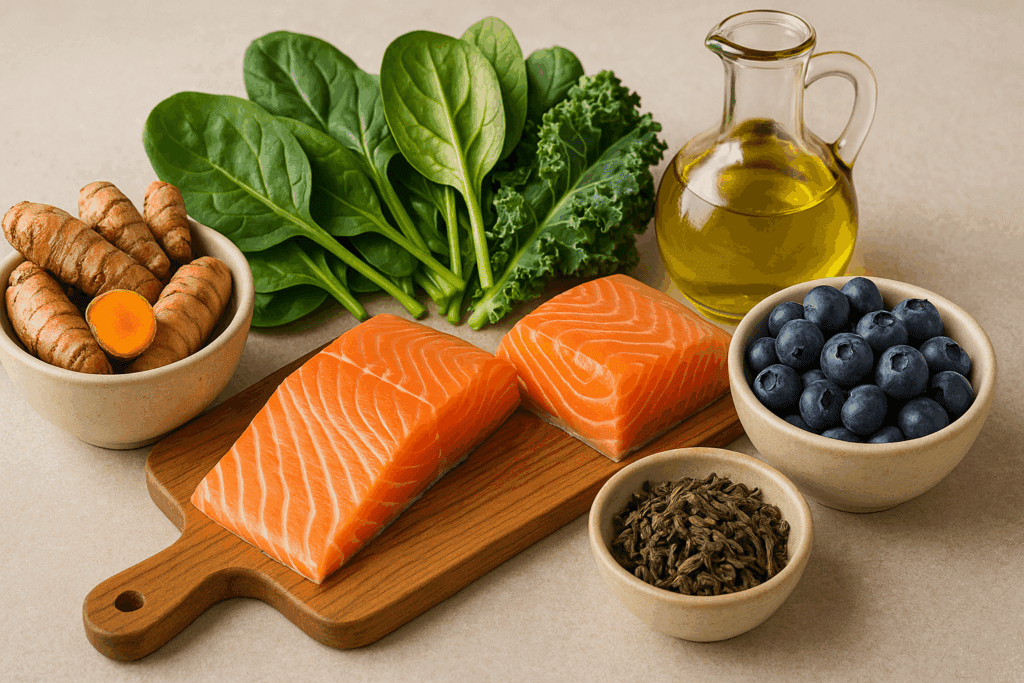
Anti-Inflammatory Benefits of Foods Good for Colon Health
Chronic inflammation is both a cause and consequence of poor colon function. Many processed and refined foods, particularly those high in trans fats, sugar, and additives, contribute to the production of inflammatory mediators. In contrast, colon healthy foods contain compounds that help quench oxidative stress and restore immune balance.
Polyphenols, naturally occurring antioxidants found in berries, green tea, dark chocolate, and olive oil, reduce inflammation by neutralizing free radicals and modulating gene expression. Curcumin, the active compound in turmeric, has been extensively studied for its anti-inflammatory and anticancer effects in the gastrointestinal tract. Including turmeric in meals or taking it with black pepper to enhance absorption can be particularly effective for individuals with a predisposition to inflammatory conditions.
Fatty fish such as salmon, sardines, and mackerel are rich in EPA and DHA, types of omega-3 fatty acids known to reduce intestinal inflammation and improve microbial diversity. These foods also contribute to the production of resolvins and protectins, specialized pro-resolving mediators that help the body resolve inflammation rather than merely suppress it.
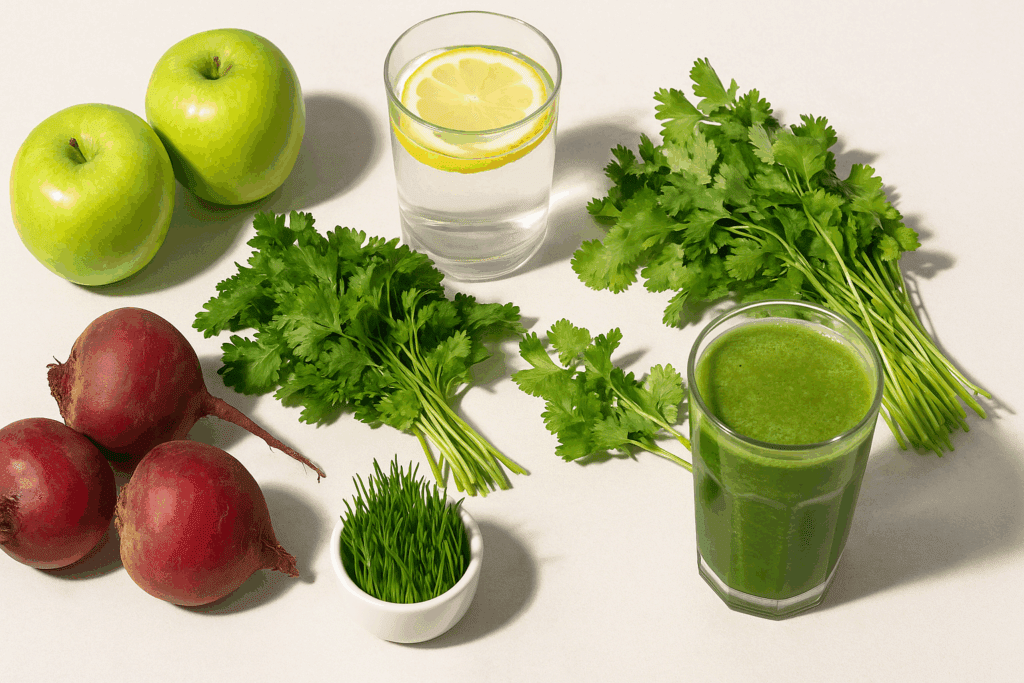
Colon Healthy Foods That Support Detoxification Pathways
The colon is a primary channel for the elimination of metabolic waste and environmental toxins. Ensuring that this pathway functions efficiently is vital for overall detoxification. Colon healthy foods aid detoxification by enhancing bile flow, increasing fecal bulk, and binding to toxins for safe excretion.
Beets, for instance, contain betaine, a compound that supports liver function and methylation pathways. This dual benefit makes them an excellent food for comprehensive detoxification support. Apples, especially with the skin, are rich in pectin, a type of soluble fiber that binds to cholesterol and heavy metals in the colon.
Additionally, foods high in chlorophyll, such as parsley, cilantro, and wheatgrass, may help chelate heavy metals and neutralize environmental toxins. Activated charcoal and certain clays have also gained popularity as supplemental aids for binding toxins, although they should be used cautiously and under professional supervision to avoid nutrient malabsorption.
Balancing Meal Timing and Food Combining for Digestive Efficiency
Beyond the composition of one’s diet, how and when food is consumed can significantly influence colon health. Consuming meals at consistent times helps regulate circadian rhythms and digestive enzyme secretion. Skipping meals or irregular eating patterns may disrupt gut motility and increase the risk of dysbiosis.
Food combining principles, though not universally endorsed in mainstream medicine, suggest that certain food pairings can ease digestion. For instance, consuming fruit on an empty stomach may reduce fermentation in the colon, and pairing protein with non-starchy vegetables rather than starches may optimize enzymatic activity. While evidence is mixed, some individuals report improved digestion with mindful food combinations, and personalized approaches can be valuable.
Chewing food thoroughly and eating in a parasympathetic state—free of distractions or stress—activates the vagus nerve and promotes optimal secretion of digestive fluids. This enhances not only nutrient absorption but also reduces the risk of fermentation and gas production, contributing to a more balanced and comfortable digestive experience.

Long-Term Strategies for Sustaining Colon Health
Creating a sustainable approach to colon health involves more than short-term dietary changes; it requires a lifestyle that supports regular detoxification, microbiome diversity, and anti-inflammatory resilience. Cultivating daily habits such as moderate exercise, stress reduction, and sufficient sleep amplifies the benefits of colon healthy foods.
Intermittent fasting, when practiced responsibly, can give the digestive system a break and promote autophagy, the body’s natural cellular cleaning process. This may indirectly support colon function by reducing the inflammatory load and encouraging microbial balance. Additionally, rotating different fiber sources and plant foods introduces microbial variety, which strengthens the gut ecosystem.
Routine medical checkups, including colonoscopies after a certain age or for those with risk factors, are essential for early detection of polyps or other abnormalities. Holistic care does not replace medical intervention but complements it by reducing the likelihood of complications and supporting recovery through nutrition and lifestyle.
Frequently Asked Questions: Colon Healthy Foods and Gut Wellness
How can colon healthy foods impact mental clarity and emotional health?
Emerging research highlights a strong connection between gut health and brain function, often referred to as the gut-brain axis. Colon healthy foods indirectly influence neurotransmitter production by supporting a balanced gut microbiome, which plays a role in serotonin and dopamine regulation. Consuming a diverse diet rich in fiber and probiotics can reduce systemic inflammation and improve cognitive performance. Individuals who prioritize these foods often report improvements in mood stability and reduced symptoms of anxiety or brain fog. While not a replacement for mental health treatment, a colon-optimized diet offers valuable, evidence-based support for emotional resilience and mental acuity.
Are there specific colon healthy foods that help with night-time digestion or sleep?
Yes, certain foods good for colon health can support night-time digestion and promote restful sleep. Kiwi, for instance, contains serotonin and fiber that support gut motility and pre-sleep relaxation. Tart cherries are a natural source of melatonin and can ease sleep onset while also offering antioxidants beneficial to colon tissue. Warm oatmeal or cooked bananas, rich in magnesium and resistant starch, may also soothe the gut lining before bed. Integrating these foods into a light evening meal may enhance digestion during sleep and reduce nighttime gastrointestinal discomfort.
What role does stress play in colon health, and how can diet help mitigate it?
Chronic stress negatively impacts colon health by altering gut motility, reducing digestive enzyme output, and promoting dysbiosis. Stress can also increase intestinal permeability, exacerbating conditions like leaky gut. Foods high in omega-3 fatty acids, such as flaxseeds and walnuts, help reduce cortisol levels and systemic inflammation. Adaptogenic herbs, including ashwagandha and holy basil, when combined with colon healthy foods, may further buffer the body’s stress response. A diet rich in fermented foods, prebiotics, and soothing herbs like chamomile can serve as both a nutritional and therapeutic tool to regulate stress-related digestive symptoms.
Can colon healthy foods help prevent colorectal cancer?
While no food can guarantee cancer prevention, diets high in colon healthy foods are associated with a lower risk of colorectal cancer. This is due to the anti-inflammatory, antioxidant, and fiber-rich properties of such foods, which support a healthy mucosal barrier and encourage regular bowel movements. Certain compounds found in cruciferous vegetables, such as sulforaphane, may help neutralize carcinogens and support phase II liver detoxification. Additionally, short-chain fatty acids produced by fermenting fiber in the colon have protective effects against tumor development. A consistent intake of diverse plant-based foods may create an internal environment less conducive to cancer proliferation.
Are there colon healthy foods that support gut repair after antibiotic use?
After antibiotic treatment, the gut microbiome often suffers significant depletion of beneficial bacteria. Colon healthy foods that contain both prebiotic fibers and live cultures can help re-establish balance. Examples include Jerusalem artichokes, dandelion greens, and fermented products like miso or kefir. Bone broth is also useful post-antibiotics, as it contains amino acids like glycine and proline, which aid in tissue regeneration and barrier repair. Rebuilding the microbiota requires consistency, so introducing these foods daily over several weeks is recommended for long-term gut restoration.
What are the best colon healthy foods for people with sensitive digestive systems?
People with sensitive digestive systems often benefit from low-FODMAP versions of colon healthy foods. Cooked vegetables such as carrots, zucchini, and spinach provide fiber without triggering bloating. Fermented foods like lactose-free kefir or lightly fermented sauerkraut may be better tolerated due to their reduced sugar content. Rolled oats and well-cooked lentils offer gentle sources of soluble fiber, which support gut lining repair and smooth bowel transit. Individuals should consider slowly reintroducing foods and tracking responses to create a customized list of tolerable options.
How do colon healthy foods support athletic performance and recovery?
Athletes often overlook digestive health as a factor in endurance and recovery. Colon healthy foods enhance nutrient absorption, enabling more efficient energy production from carbohydrates, proteins, and fats. Anti-inflammatory foods like tart cherries and turmeric reduce exercise-induced oxidative stress. A healthy colon also minimizes gastrointestinal distress during performance, which is common in endurance sports. By maintaining microbial diversity and promoting smooth digestion, athletes can recover faster and optimize training outcomes.
Colon Healthy Foods and Travel: How to Stay Regular on the Go
Maintaining colon health while traveling presents unique challenges due to disrupted routines, unfamiliar foods, and stress. Portable colon healthy foods such as chia seed pudding, dried prunes, and shelf-stable fermented snacks like kimchi packets or kombucha can help preserve gut balance. Staying hydrated is equally important, especially during air travel, as dehydration contributes to constipation. Traveling with a small container of ground flaxseed can also aid digestion when mixed into meals or drinks. Prioritizing fiber, hydration, and probiotic intake while away from home supports colon function and minimizes digestive discomfort.
Why Do Some People Experience Bloating When Eating Foods Good for Colon Health?
Bloating can be a temporary side effect when introducing high-fiber or fermented foods into the diet too quickly. This is often due to increased microbial fermentation in the colon, especially when gut bacteria are adjusting to new food sources. While these foods are beneficial long-term, a gradual increase allows the digestive system to adapt. Cooking certain foods—like cruciferous vegetables—can reduce gas-producing compounds and ease symptoms. If bloating persists, it may indicate an underlying issue such as small intestinal bacterial overgrowth (SIBO) or food sensitivities that require individualized guidance.
Future Trends in Nutrition: The Evolving Role of Colon Healthy Foods
As scientific understanding of the gut microbiome deepens, the role of colon healthy foods is poised to expand in both preventive and therapeutic health models. Personalized nutrition based on microbiome testing is becoming more accessible and may soon allow individuals to tailor their diets with remarkable precision. Additionally, innovations like synbiotic supplements, postbiotics, and microbiota-accessible carbohydrates (MACs) are gaining traction in clinical and wellness communities. Food technology is also evolving, with functional foods being designed to specifically enhance colon health through bioengineered fibers and targeted probiotic delivery. These advancements signal a future where colon-focused nutrition becomes a cornerstone of integrative and precision healthcare.
The Transformative Impact of Colon Healthy Foods on Digestive and Systemic Health
Embracing colon healthy foods is more than a dietary preference; it is a transformative strategy for enhancing digestive resilience, immune regulation, and even emotional equilibrium. These foods serve as catalysts for healing and maintaining the gut barrier, nourishing beneficial bacteria, and mitigating inflammation—all of which are pivotal for long-term wellness.
As scientific understanding of the gut microbiome and its systemic influences continues to evolve, the role of diet becomes increasingly central to preventive healthcare. Choosing foods good for colon health equips individuals with a powerful toolkit for managing current digestive challenges and reducing the risk of future disease. It also underscores the profound truth that food is not just sustenance but medicine.
In this light, supporting gut health through colon healthy foods is an empowering, evidence-based approach to living with vitality and intention. Whether you’re managing a specific digestive issue or simply aiming to thrive, the path to better health begins in the colon—nourished daily by the choices we make at the table.
Further Reading:
7 Types of Foods That May Help You Prevent Colon Cancer
Foods That Fight Colorectal Cancer: A Guide to Nutrition for Prevention and Treatment
Best Foods for Colon Health: Top 8 Foods for Optimal Digestive Health

